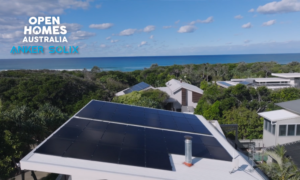A new book by renowned climate scientist Professor Tim Flannery calls for greater solar uptake.
The book, ‘Sunlight and Seaweed’, explores a range of technological breakthroughs in harnessing Australia’s natural resources.
A Climate Council member, Professor Flannery is also an internationally acclaimed scientist, explorer and conservationist.
The book highlights the importance of solar energy in a country enjoying abundant sunlight.
However, it has taken years to discover effective ways to use it as a primary energy source, Professor Flannery says.
He also addresses the challenge of producing solar energy on overcast days. To solve supply problems, ‘intense heat energy’ use and commercial energy storage are cited as solutions.
How solar uptake challenges climate change
As a ‘climate optimist’, Professor Flannery points to big advances in fighting climate change.

In the book, he claims the use of rooftop solar panels by householders is making a huge difference.
However, he regards concentrated solar thermal plants as an area of ‘great potential’ for Australian energy.
Therefore, he calls for greater Government investment in renewable energy. In addition, he applauds the announcement of a $650 million solar plant to be built in South Australia.
The Aurora Solar Energy Project, near Port Augusta, should supply 100% of the State Government’s needs by 2020, according to Prof Flannery.
A two-pronged solution to climate change
In the book, Professor Flannery points to the immediate need to reduce climate emissions, then to find creative ways to reverse global warming.
Seaweed, he believes, has an important role to play in drawing down carbon from the environment. By growing seaweed off the coast, carbon in the seaweed is sequestered forever, he says.
Already a $10 billion industry, seaweed farming also draws acidity out of the water and provides a food source for fish.
Professor Flannery is hosting a climate change discussion at Northcote Town Hall, Melbourne, on Wednesday 13 September at 7.30pm.
Called ‘Rays of Hope’, it will focus on solar power, energy storage batteries and atmospheric carbon removal via seaweed in Australia.














































